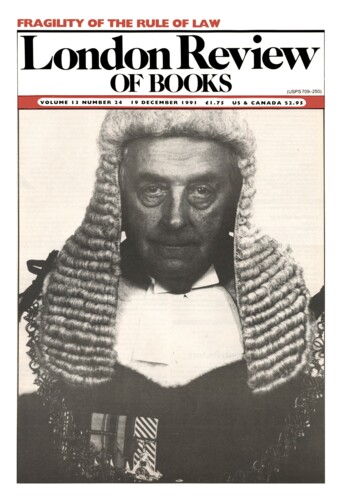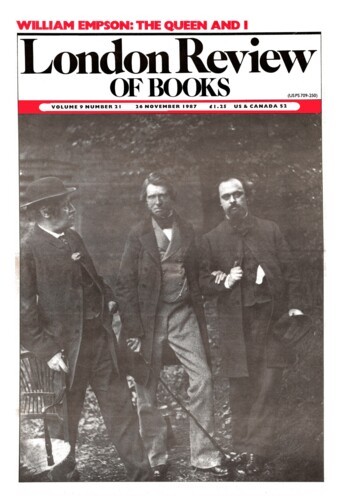Anthony Lewis
Anthony Lewis is a former London correspondent of the New York Times, for which he continues to write, while also teaching at the Harvard Law School. His article in this issue is based on his Sir John Foster Memorial Lecture, given at University College London.
Freedom of the Press
Anthony Lewis, 26 November 1987
Martin Chuzzlewit, in the Dickens novel, crosses the Atlantic in a packet boat. When it reaches New York, newsboys come aboard shouting out the latest in their papers: the New York Sewer, the Stabber, the Plunderer and so on. ‘Here’s the Sewer’s exposure of the Washington gang,’ one cries, ‘and the Sewer’s exclusive account of a flagrant act of dishonesty committed by the Secretary of State when he was eight years old, now communicated, at a great expense, by his own nurse.’ No one but Dickens could make the point with such extravagant gusto. But others felt a distaste for our press then, and do now. How self-righteous it can be, and how outrageous. Today Americans would add: how powerful. Our papers no longer have to retail fancies of the crimes committed by political leaders in childhood. We have a press that exposes real official wrongs: a press which helped to force a President from office and which has pushed candidates out of the present campaign for the White House. That kind of press arouses resentment: hardly a surprise. ‘The press is the enemy,’ President Nixon instructed his staff. Politicians less prickly than he have felt victimised by the press. And resentment does not come only from the victims. Among the public, too, there is a feeling that the press has grown arrogant. ‘Who elected you?’ people ask.
Read anywhere with the London Review of Books app, available now from the App Store for Apple devices, Google Play for Android devices and Amazon for your Kindle Fire.
Sign up to our newsletter
For highlights from the latest issue, our archive and the blog, as well as news, events and exclusive promotions.


